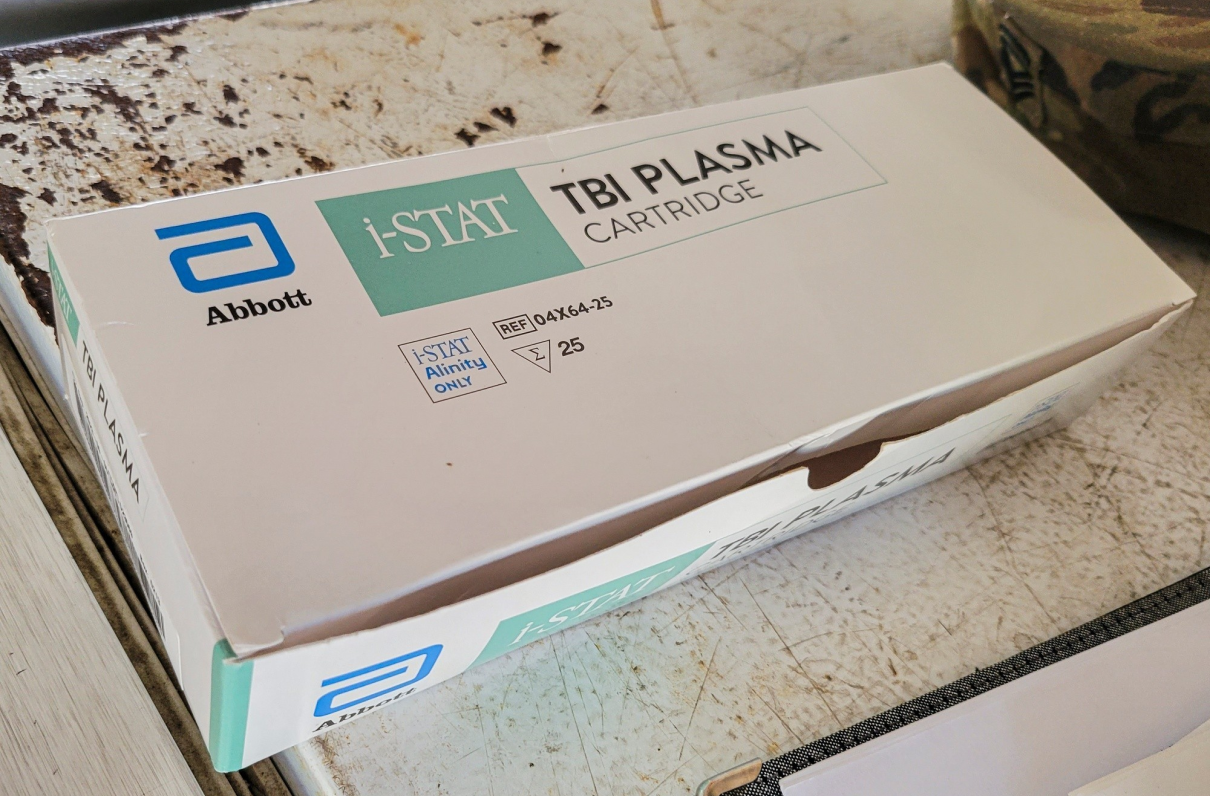This article by Karen Jowers originally appeared on Military Times, the nation's largest independent newsroom dedicated to covering the military and veteran community.
A new rapid test that checks for traumatic brain injuries using a single drop of blood is expected to make its debut in the military in the coming months.
The product marks one of the most significant steps forward for TBI patients’ care in the past 20 years, Lt. Col. Bradley Dengler, an Army neuroscientist who directs the Military Traumatic Brain Initiative at the Uniformed Services University in Bethesda, Maryland, said in a recent release announcing the product’s approval by the Food and Drug Administration.
The test can ascertain whether a person’s blood contains the protein markers associated with a mild TBI, or concussion, after 15 minutes. In combat, that speed can help military medics quickly decide how to treat an injured service member, avoiding unnecessary evacuations and CT scans and improving TBI case management in the field, officials said.
Earlier tests designed to help diagnose concussions or more severe TBIs rely on blood plasma or serum, and must be processed in a laboratory that can take hours or days to issue results.
[RELATED: 1 Million Veterans Have Now Received Health Benefits for Toxic Exposure Through the PACT Act]
The new test requires about 20 microliters of blood, which is about half the volume of a raindrop or a teardrop. Similar to at-home blood glucose tests, a patient’s blood is placed on a cartridge that is inserted into a portable device for analysis. While glucose tests use a finger prick, these tests require blood drawn from a vein.
The new test doesn’t offer a firm diagnosis but can flag indicators of a TBI and intracranial hemorrhage. The higher the protein levels the test detects, the more significant an injury might be. The device can be used to evaluate patients up to 24 hours following an injury.
The Analyzer Traumatic Brain Injury system, approved for use in the spring, is expected to be fielded to the Army in fiscal year 2025, said Damien Hoffman, a biomedical engineer and product manager with the Army’s Medical Materiel Development Activity. Hoffman’s organization developed the test in partnership with medical device manufacturer Abbott Laboratories.
The other military branches can purchase the tests through the Defense Logistics Agency.
[RELATED: Military Services Approving About 3% of Servicemembers’ Malpractice Claims]
Known as one of the signature injuries of troops wounded in Afghanistan and Iraq, TBIs can alter a person’s physical abilities as well as their memory, mood and focus. Effects of the “invisible wounds” can range from headaches, vision and hearing problems, to death or extended coma or amnesia in severe cases.
Nearly 500,000 service members worldwide received a TBI during military training or deployment, or day-to-day activities such as sporting events, from November 2000 through December 2023, according to the Defense Health Agency.
Other articles by Military Times:
Navy explores how to get ‘forever chemicals’ out of sailor uniforms
Six decades later, Marine Vietnam veteran awarded Silver Star
Nebraska wants to keep veterans out of jail. Other states may follow.
Support The MOAA Foundation
Donate to help address emerging needs among currently serving and former uniformed servicemembers, retirees, and their families.
